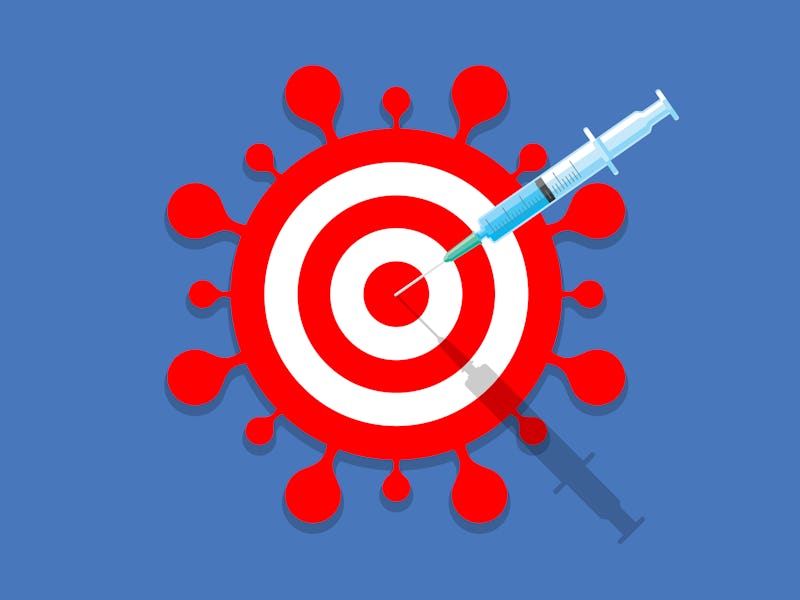In September, 3 vaccines move into final stage of testing in the US
Here is everything you need to know about these promising vaccine candidates.

As hundreds gathered to protest vaccines in the United States and the United Kingdom over the weekend, AstraZeneca prepared to make a very big vaccine-related announcement. On Monday, the pharmaceutical company revealed its Covid-19 vaccine candidate entered the final testing phase in the United States — a Phase 3 clinical trial.
Co-invented by scientists at the University of Oxford and AstraZeneca's spin-out company Vaccitech, the vaccine is known as AZD1222. Formerly called ChAdOx1 nCoV-19, it made headlines in April as the "Oxford vaccine," after it managed to keep macaques infected with the novel coronavirus healthy for 28 days.
It joins two other vaccine candidates already in the phase 3, large-scale testing phase in the US — one developed by Moderna Inc., and the other by Pfizer Inc. and BioNTech.
Phase 3 trials are the most crucial test of human vaccines. Entering this phase of testing means a vaccine has already moved through clinical studies in which it was given to people with characteristics similar to those whom the vaccine is designed to help. In Phase 3, vaccines are given to thousands of people, and tested for safety and efficacy.
Editor's note: As of September 8 the Phase 3 trial has been paused, STAT reports. Per a statement from AstraZeneca, the company's "standard review process triggered a pause to vaccination to allow review of safety data." A spokesperson describes the pause as a routine reaction to a "potentially unexplained illness in one of the trials."
As of August 31, there are nine vaccines for Covid-19 being tested in Phase 3-equivalent trials around the world. Three are specifically being evaluated in the US. These are:
The AstraZeneca vaccine candidate, AZD1222
As of Monday, enrollment for phase 3 clinical trials of this vaccine candidate has opened. The goal is to recruit up to 30,000 adults, aged 18 years or over, who, per the announcement, are from "diverse racial, ethnic, and geographic groups who are healthy or have stable underlying medical conditions, including those living with HIG, and who are at increased risk of infection from the SARS-CoV-2 virus."
This vaccine is based on a chimpanzee adenovirus called ChAdOx1. In July, the vaccine team announced in the journal The Lancet that, 14 days after receiving the vaccine, between 91 to 100 percent of 543 human trial participants produced neutralizing antibodies. These antibodies prevent viruses from infecting healthy cells, and are likely to correlate with protection from Covid-19.
The company AstraZeneca is behind the vaccine AZD1222.
This trial's group of 30,000 participants will be randomly assigned either a saline control, or two doses of AZD1222, which individuals will take four weeks apart. (Twice as many people will receive the vaccine than not.) Overall, scientists are testing for efficacy and safety; the immune responses of 3,000 participants will also be evaluated in detail.
The trial is part of the US government's Operation Warp Speed program. Other late-stage AZD1222 trials have already begun in South Africa, Brazil, and the United Kingdom. The goal is to enroll up to 50,000 participants worldwide — there are plans to begin trials in Russia and Japan soon, too.
The Moderna vaccine candidate, mRNA-1273
Phase 3 clinical trials for the Moderna vaccine began on July 27. It is also enrolling 30,000 healthy adult participants. Ultimately, it will be tested at 89 clinical research sites, 24 which are a part of the NIH Coronavirus Prevention Network.
This vaccine is a nucleic acid vaccine and operates on the idea that messenger RNA can be reengineered. RNA typically regulates how genes produce proteins. Here, it's hijacked to carry a copy of the virus's genetic sequence. This spurs cells to produce antibodies instead.
According to the National Institutes of Health, the trial is designed to test for safety, and to see if the vaccine can prevent symptomatic Covid-19 cases after two doses.
It also aims to discover if the vaccine:
- Can prevent death caused by the novel coronavirus.
- If it can prevent severe Covid-19 cases without disease symptoms.
- Whether or not one dose could be enough to do the job.
In July, a preliminary report showed that after two dosages, the 45 people who received the vaccine appeared to produce antibodies. One dose caused some participants to produce binding antibodies, and two doses caused all participants to produce neutralizing antibodies. The question that remains unanswered is: How long do these antibodies last? Phase 3 trials should give us an answer.
The Pfizer/BioNTech vaccine candidate, BNT162b2
Phase 3 clinical trials for this candidate vaccine were also announced on July 27. This trial will include 30,000 health adults in the US, and is expected to expand to 120 sites globally.
The vaccine is designed to be given in a two-dose regime, at a 30 µg dose level. According to a press release, it "encodes an optimized SARS-CoV-2 full-length spike glycoprotein, which is the target of virus-neutralizing antibodies."
These companies originally pursued two potential vaccines for Covid-19, but BNT162b2 appears to cause fewer side-effects — so the focus is on it for now. Results from its Phase 1/2 trial, published in August, suggest, like the other candidates, BNT162b2 also causes people to produce virus-neutralizing antibodies. It also caused participants to produce T cells, which confer a different type of immunity.
If the Phase 3 trial is a success, the companies behind BNT162b2 plan to seek regulatory review as early as October 2020 and supply up to 100 million doses by the end of October 2020.
This article was originally published on